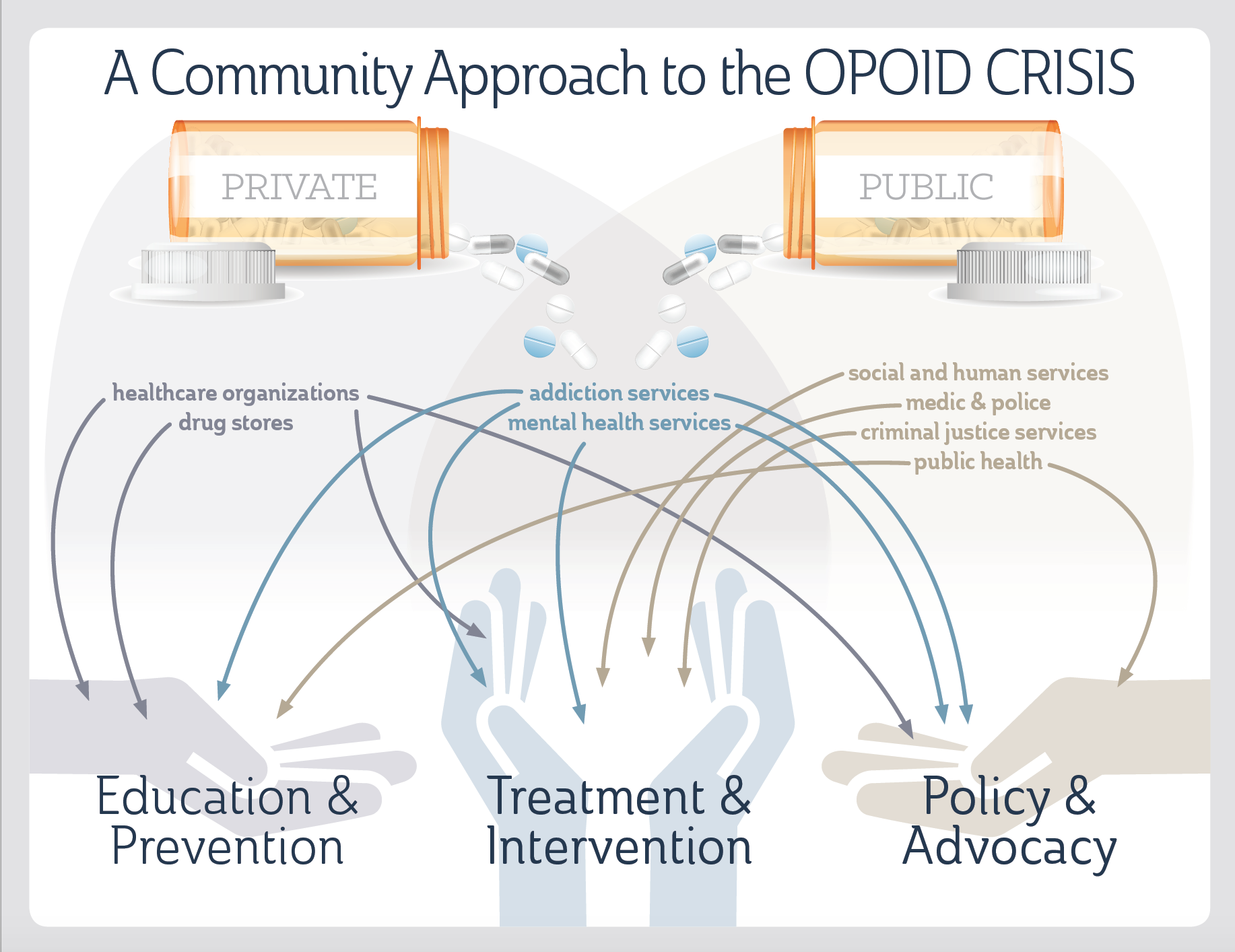Another opioid related headline. News of another opioid related death. It almost seems never-ending. And just as my heart was beginning to heal from the devastation I felt after losing my musical icon Prince last April, the latest headline linking an exorbitant amount of Fentanyl to his death, reopened the wound yet again. Another loss due to an opioid addiction.
According to the Mecklenburg County Public Health Department, there were 121 opioid overdose deaths in 2016, that’s up from 61 in the previous year. That’s an alarming figure – all tied to one class of drugs. And while the data is alarming, it’s difficult to comprehend the impact the epidemic is having without examining all the facets of a community that the addiction tends to affect.
So, what happens to a community after the opioid epidemic moves in? That is the question that brought more than 600 people out to the Charlotte Convention Center for Mecklenburg County’s 2018 Opioid Summit. The summit brought community members like CMPD, CMS, the District Attorney’s Office, the County Medical Examiner’s Office, as well as state and County health leaders together to address the dangers of opioids and its impact on the community.
The audience was comprised of more than just “white coats” and medical professionals. Recovery specialists, those who battled addiction, and families and friends of someone who battled the addiction also attended the event.
As I sat in the audience and listed to the various speakers, I realized that I didn’t fall into any of the categories of those who sat around me. Yet, the statistics were startling and the personal stories from those who battled addiction weighed heavy on my heart. Hearing their stories made me care about the opioid crisis.
If you ever found yourself asking why you should care about opioid addiction, just look at how the crisis pummels our community:
- Emergency room data shows there were 340 opioid overdose visits in 2016, with the overwhelming majority occurring with patients ages 25-44.
- Mecklenburg County Public Health Department data shows there were 121 opioid overdose deaths in 2016, up from 61 in the previous year.
- The Mecklenburg County Medical Examiner’s Office says the rise in opioid related overdose deaths has prompted the need to make immediate changes to transport and storage of decedents coming to the facility.
- In the 2nd quarter of 2016, Charlotte-Mecklenburg Schools reported 369 drug violations among students. Roughly 114 of the reported violations were due to use of controlled substances. The controlled substances include opioids as well as other drug classifications.
- CMPD officers are now being trained to administer Narcan. Narcan or naloxone is administered to people in order to reverse the effects of an overdose of heroin or other opioid painkillers. Once this training is completed, all first responders will be able to quickly and effectively deal with someone experiencing an opioid overdose.
- Criminal Justice Services, now in partnership with the Health Department and UNCC, received a three-year grant that will: implement an opioid track in the Jail Treatment Program, initiate medication assisted treatment prior to the release from Jail, provide opioid training for service providers working with justice involved opiate addicts.
- Department of Social Services — The opioid crisis is far-reaching, and affects more than those battling addiction. The epidemic is wreaking havoc on our hospitals and medical facilities. The epidemic is weighing on the scales of the criminal justice system and community. The crisis has also moved into our school systems and in some cases following our children into college. The crisis is tearing families apart – placing an even greater strain on our Social Services system.
Mecklenburg County wants to use the summit to look for ways to implement changes to help combat the epidemic. But the community will need to work together to bring an end to the crisis. Here’s a look at how we’ve started:

